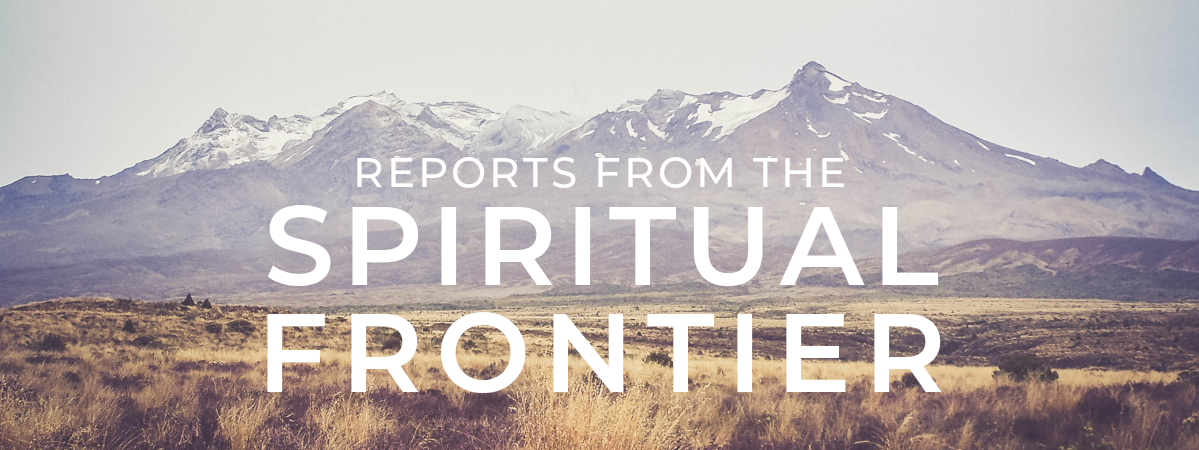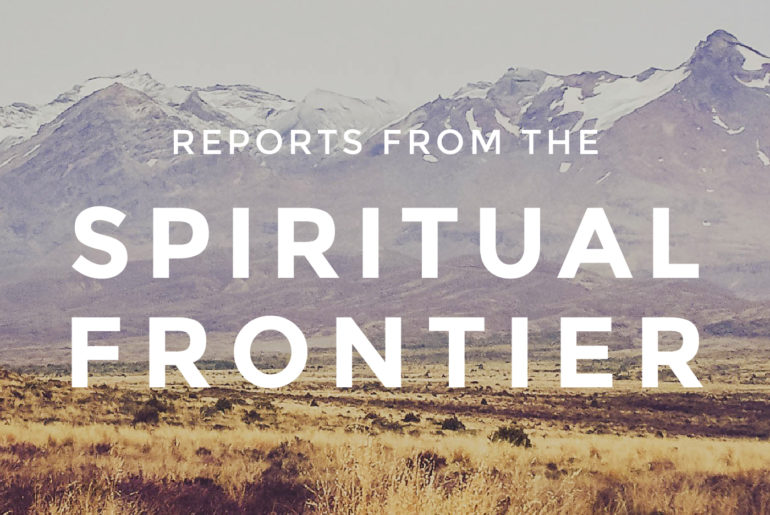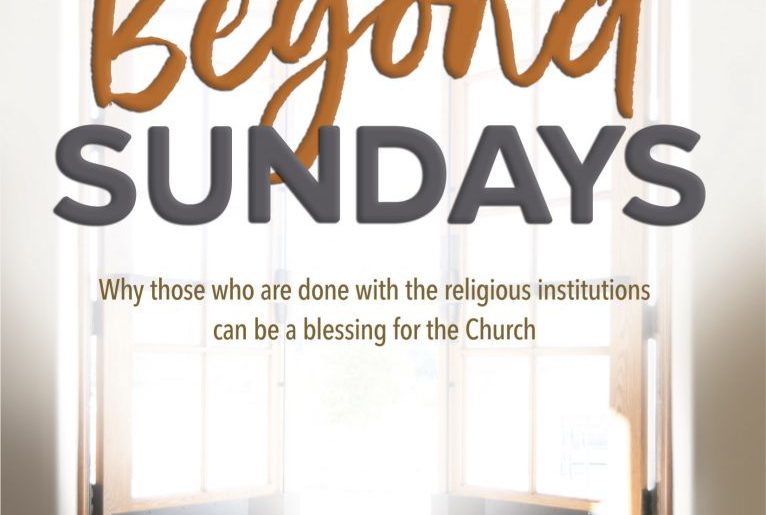
For the first time in my life, I won’t be watching the NFL at all this fall.
I need to name this publicly and explain why. (For my own sake, really.)
(And, for the record, this is my story and my decision. Your story and your decision don’t have to be the same as mine, and that’s completely fine.)
(Also for the record, I had plans to write a four thousand word essay on the NFL and the concepts of attachment and detachment, entitled “Goodbye, Tom Brady”, complete with several winsome stories and a Denise Levertov quote at the end. After six months of procrastinating, you got this instead. (I’m sorry. Or you’re welcome.))
The NFL has been the most important sport in my life. I remember running upstairs at 1:30 in the morning in January 2002 to wake up my dad and let him know that “Oh my God! The Patriots have the ball and they’re about to kick in the snow!” Football was the Sunday afternoon fixture in my household on weekends home from college; it was how my now-wife wormed her way into the family by doing ice cream runs at half time; it was the only time I woke my dad (and the household up) at 1:30 in the morning (2012 – the Tuck Game); it was the first time I had dreams when a team lost the Super Bowl (2007), where I screamed like a maniac (2015) when no-name Malcolm Butler intercepted the potential game-winning touchdown pass in the end-zone. It was the place, where, even in the hard years of college, the soul-crushing final years in professional ministry, I could make the world stop: where I could pour myself into something that had no stake on what was going on in the rest of my very demanding life. The fact that I was following the best dynasty, the best player, and the best coach that I will likely ever follow in my lifetime made it even sweeter.
However, my experience of the sport became much more complicated over the last few years. There were the pictures of Greg Hardy’s girlfriend and Adrian Peterson’s child, both of whom were beaten, and whose abusers were allowed to keep their jobs in the NFL. There was the news that football causes permanent brain damage and that the NFL destroyed people’s careers to cover it up. There were Colin Kaepernick (and now Eric Reid), shamelessly blackballed from their jobs because they chose to protest police violence. There was Bob McNair, owner of the Houston Texans, using racist dog whistles to refer to his players and the NFL ownership groups, who more visibly than any other support, lined up behind Donald Trump’s presidency (including the most prominent figures on the Patriots, from quarterback, to coach, to owner.)
I began to wonder: given that all our entertainment is problematic, at what point does it become too problematic for me to ethically enjoy?
I remember talking with some of you about this last fall on Facebook. All us football fans on my status were pretty damn resistant to suggestions that maybe we should stop watching.
And, I have to say: people who don’t follow sports don’t realize what what it means to ask someone to give up a game like this. You’re giving up a weekly moment of emotionally-necessary catharsis at the end of weeks where you have to absorb so much open-ended pain, you give up your status in a tribe that allows you to strike up a conversation with party-goers, gas station attendants, and people on the street. You give up a hobby that you can care about passionately, while also knowing that it doesn’t REALLY matter, a beautiful gift in a historical moment where it feels like everything has high stakes.
That Facebook conversation sat with me like a stone throughout the fall (as I didn’t watch football) and the playoffs (as I did.)
I kept thinking about how not one of my football loving friends (including myself) could come up with a good defense for why watching the NFL was okay, besides “But I like it!” or “All sports are bad so we should just watch them all!”. I kept thinking about how every person on my status who said, “Not watching football won’t make a difference” was a white male (and how the person who said “your choice does make a difference” was neither.)
I began to wonder if rather than asking, “Will me personally not watching football make a difference?” that I should ask “What does it say about me that I still enjoy watching?”
That question really disturbed me.
How can I say that follow the Sermon on the Mount and then watch a sport that condones family abuse, deifies the military, silences and dehumanizes black men, and actively supports a leader who has actively sought the harm of the people who God loves?
How can I say I’m trying to be a good white ally when my friends who are people of color say, “You really shouldn’t watch this” and I say, “I’m going to watch because I like it, and my view really doesn’t count anyway.”
In the end, it was my constant wrestling with those questions every time I turned on the TV on Sunday afternoon (or didn’t but wished that I could), that began to make me wonder whether it was time to say goodbye to this sport I loved. And, it was the last six months: the most dramatic period of emotional and spiritual healing in my life that convinced me that I didn’t need football anymore to be a functioning human being.
What will I do now? I’ll watch basketball. I’ll play with my son. I’ll have to take some deep breaths when I feel like my Sunday afternoons are not quite right anymore. I’ll agonize about whether I was right to do this or whether this is just the excessive angst of yet another white progressive.
But all that being said, for now, I’ve put my Tom Brady jersey away and I’ll wait to come back until people like Shaun King and Leroy Barber tell me it’s okay to do so.
As I said, this is just my story. It doesn’t have to be yours. It took me a lot of years to get here, and even as late as last fall, I was just not able to make the leap, despite my deepest convictions. I don’t expect that football has the same place for you that it did for me or that you will share my burning need to change viewing habits. But – I hope that some of my questions might trouble you as much as they troubled me; and whatever you do, you will take some time to wrestle with them, even as you sit down for that ever-so-meaningful Sunday afternoon ritual.
Twice a year, I try to check in with you all about how my podcast, “Reports from the Spiritual Frontier” is going. (My last update is here.) As I mentioned during my update at the beginning of the year, this is my make or break year for this podcast. The first six months have been immensely clarifying about what that means, so, without further ado, let’s check in:
1) Am I having fun?
I could almost copy-paste my response from last time. I love the interviews and the opportunity to have deep conversations with utterly amazing people. It’s been a *dark* six months nationally; and this podcast has been one of the key activities that gives me hope and keeps me sane.
I can’t tell you how energized some of these conversations have made me. Highlights include: talking for almost two hours with David Evan Markus, as we discovered our immense common theological ground, listening to Erin Martin and almost crying as I heard about the beautiful way her intentional community grounds her vocation, gasping almost audibly I had heard Dan Wolpert describe the first six years of my pastoring in five minutes, smiling as I heard Lisa and Justin talk so openly and collegially with Ramsey about creating spiritual community with the differently abled.
I still don’t like promotion, I still don’t like wrangling guests (and yup, I’ve had several no-shows, etc. this year), I still don’t like the way that I can anxiously obsess over statistics.
I’ve discovered that I have a super-anxious artist living in the back of my brain, and while I know I have to deal with him, the constant “This is going to fail”, “Your audience isn’t growing”, “Your podcast isn’t making much of a difference” monologue is emotionally exhausting.
2) Is it sustainable?
Thanks to some excellent feedback from Beth Estock, Kenda Creasy-Dean, and David Evan Markus, I now have a workable business plan.
Out of that came immensely simplifying clarity: the bottom line is that my podcast is simply not solvent, and my income needs to expand if I can afford to do this for a fourth season.
This is the linchpin to my discernment. If people like what I’m doing enough to invest financially in it (stay tuned in early fall for a Patreon campaign and very affordable financial sponsorship opportunities for your organization!), then I can step into this for a fourth season and feel good about it. If not…
3) Is it making a difference?
We’ll see. My listens are about 10% down from last year (in part due to a interview-cancellation/illness absence in May). For me, the question whether people value this enough to invest in it financially will be the answer to this question.
4) Am I learning?
I’ve leveled up my business-planning skills immensely. I’m still not great as surfacing the value proposition of my podcast, accurately valuating my audience, and hustling to find partners; but I finally feel like I have a pathway for growth, which is very encouraging!
In One Hundred Words or Less: A post-institutional Christians describes the shape of his spiritual life, the phenomenon of the “Dones”, his critiques of the current institutional forms of Christianity, and gives advice to those who are staying and those who are leaving.
Who Should Read It: Christians Who Have Left, Are Leaving, or Are Staying in their Institutions
How Long?: A very quick 160 pages.
Wayne Jacobsen lays out his thesis in the beginning of the very first chapter.
One of the best-kept secrets of the faith is that you don’t have to be committed to a local congregation to live out a transforming relationship with Jesus, to experience the wonder of Christian community, or to find meaningful ways to extend his kingdom in the world. But, of course, our religious institutions have a vested interest in keeping this secret.
What follows is an easily digestible 101 guide to post-institutional Christian spirituality from someone who has followed Jesus both inside and outside of institutional contexts.
Wayne runs succinctly through the most common post-institutional critiques of institutional Christianity, writing in particular about how dominant Christian structures harm the spirits of those who participate in them. He especialy points out the spiritual shortcomings of the Sunday Morning Worship/Professional Clergy model that is prevalent in most American churches.
In his chapter, “Have We Overplayed the Sermon Card”, he writes
Looking back over the Gospels, I’m amazed at how few sermons he [Jesus] actually gave, and even when he did, how little impact it had on those who listened…He simply talked to whomever he was with…He talked about his Father’s kingdom and how they could embrace. He wasn’t teaching doctrine, ethics, or rituals, but helping people discover how to live with God inside the reality of their own challenges. It was no wonder the most transformative moments came in personal conversations and why our preoccupation with sermons, seminars, and classes produces a Christianity that some complain is a mile wide but only an inch deep.
He’s also clear that these shortcomings don’t give the people who leave an excuse to be jerks. Wayne spends much of the book advising people on how to leave their current churches graciously and “avoid drawing the hard line.” He writes,
If people ask where you’ve been, instead of telling them you’ve left the Institutional Church never to return again, think again. That may be how you feel today, but grace is best tasted with daily bites. You may feel the need to leave now, but you don’t know where this journey will take you or how God might lead you down the road.
All of this concrete, straightforward advice is tempered by a gentle generosity. Wayne tempers his pointed critiques by acknowledging that people can still follow Jesus within traditional religious institutions and by constantly expressing compassion for those who can get stuck within them.
This gentleness makes it easier to engage with the often disturbing challenge that the book presents to readers who are very invested in their institutional religious contexts. Because this book is not meant to be a systemic critique of institutional Christianity or a systemic defense of post-institutional Christianity, it means that some of his most provocative chapters last just three or four pages, which may leave you feeling that the conversation is incomplete. (Knowing Wayne, he’d probably be happy to pick it up with you personally.)
So, if you are one of those institutional folks who is feeling a little defensive after just reading this review, a couple suggestions for reading his book. Rather than reading this book with the intent of being convinced (or arguing with him), read it with a spirit of curiosity, assume that Wayne’s faith has integrity, and listen for how the Spirit might be calling you to be more faithful, no matter what context you find yourself in.
In the end, this is what it’s all about anyway. Wayne calls us, regardless of our context, to better inhabit whatever tradition we are a part of, to gain enough critical distance to understood the dark side of our religious traditions, and therefore to be more faithful, no matter whether our journey takes us regularly through the doors of a church building to worship on Sunday morning or not.
For more about Wayne’s journey, his experience of being a post-institutional Christian, and his critiques and invitations for Christians of all types, check out my interview with Wayne by clicking here or by subscribing to “Reports from the Spiritual Frontier” wherever you get your podcasts.
 Join us for a little more of our conversation with Abigail Vizcarra-Perez of Connexion Tacoma, as she talks about her experience of being a pastor in a white-majority denomination and what it looks like to be a spiritual pioneer and also Mexican-American. You can find the rest of our conversation with Abigail by checking out www.facebook.com/reportsfromthespiritualfrontier or by subscribing to us wherever you get your podcasts.
Join us for a little more of our conversation with Abigail Vizcarra-Perez of Connexion Tacoma, as she talks about her experience of being a pastor in a white-majority denomination and what it looks like to be a spiritual pioneer and also Mexican-American. You can find the rest of our conversation with Abigail by checking out www.facebook.com/reportsfromthespiritualfrontier or by subscribing to us wherever you get your podcasts.
Join us for a conversation with Rev. Abigail Vizcarra-Perez, poet and pastor of Connexion Tacoma, as she shares with us about Tacoma, Washington. Hear about the moment she fell in love with her city, bad-ass baristas at Starbucks, the spiritual ecology of Tacoma, Wolves and Laundry Lounges, and what place has taught her about church planting.
You can hear conversations with spiritual pioneers like Abigail by visiting us at www.facebook.com/reportsfromthespiritualfrontier or by subscribing to us wherever you get your podcasts.

In a little more of our conversation with Wayne Jacobsen, he talks about stuck pastors and stuck Christians, and asks our pastors, “How much time do you spend doing what you got in ministry to do?” You can hear the rest of our conversation by subscribing to us on Apple Podcasts or by visiting our Facebook page, at www.facebook.com/reportsfromthespiritualfrontier.

Join us for a conversation with Wayne Jacobsen, blogger at Lifestream.org, co-author of the Shack, and recent author of Beyond Sundays as he describes his journey into post-institutional Christianity. Hear him how God told him “I’ve got much more to teach you if you leave then if you stay”, what he’s learned about trust, how he experiences spiritual community in his life currently, and his advice for those leaving institutional settings (and those who stay in traditional church contexts.)
You can hear from more spiritual pioneers like Wayne by subscribing to us wherever you get your podcasts and by checking us out at www.facebook.com/reportsfromthespiritualfrontier.
Hear a little bit more of our conversation with Rabbi Rachel Barenblat, where she shares the intersections between her faith and her vocation as a poet, and shares with a couple poems from her latest collection.
To hear the rest of our conversation with Rabbi Rachel and other interviews with spiritual pioneers, check us out on Facebook or subscribe to us on Apple Podcasts.
Join us for a conversation with Rachel Barenblat, Co-Founder of Bayit: Your Jewish Home, blogger at Velveteen Rabbi, and Rabbi at Congregation Beth Israel in North Adams, MA, as we talk about her experience of life as a religious minority. Hear about how the gift of oddity, (9:30) the challenges and joys of being a religious minority (8:30), a more life-giving way to speak into Christian anxieties about Sunday sports, graying populations, and declining worship attendance, (15:00) and what it means to let new generations shape the tradition with their own hands (25:00).
Hear more from Rabbi Rachel and other spiritual innovators by visiting us at www.facebook.com/reportsfromthespiritualfrontier or by subscribing to us via Apple Podcasts, Google Podcasts, or wherever else you acquire your best listens for your week.



